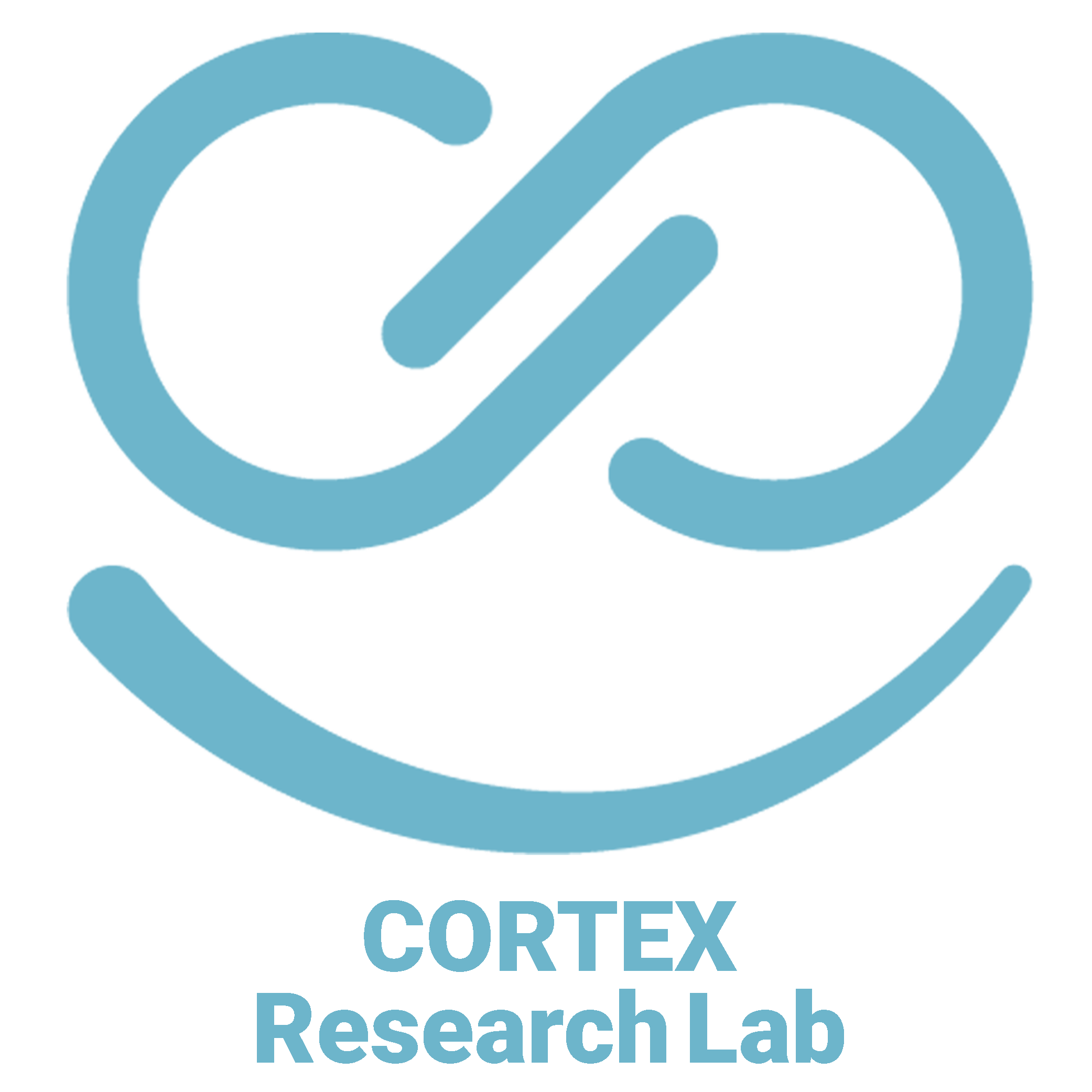A
B
C
E
F
K
M
P
S
T
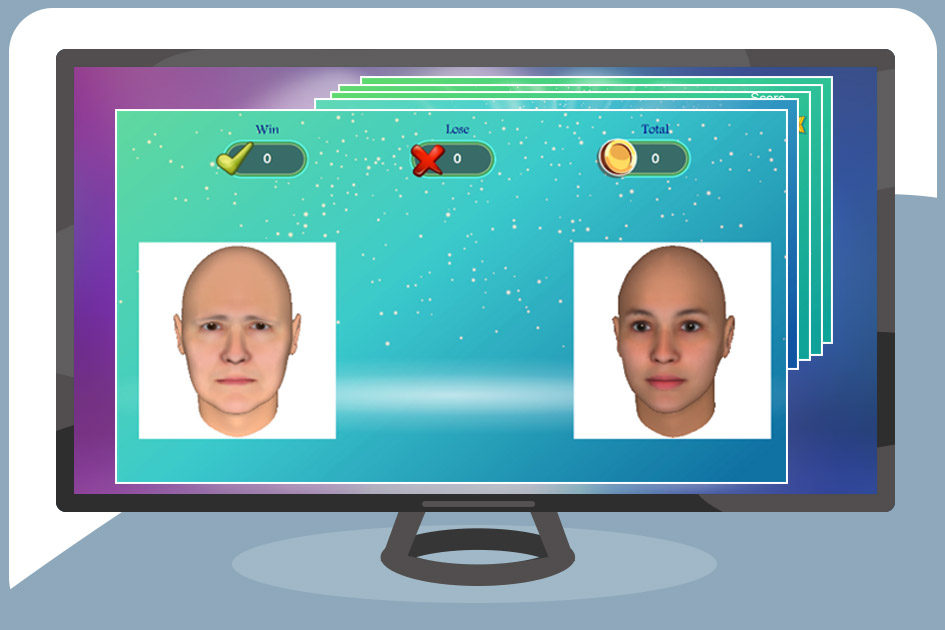
Step into the realm of ABRA, an innovative
cognitive training program meticulously curated for expert therapists.
Remediate attention bias through unique paradigms such as searching, filtering,
cueing, and rapid presentation. Engage with four transformative tasks - Target
Selection, Lucky Box (Image Selection), Colored Frame, and Face Search - to
foster balanced cognitive patterns (Nejati et
al., 2019).
Reference
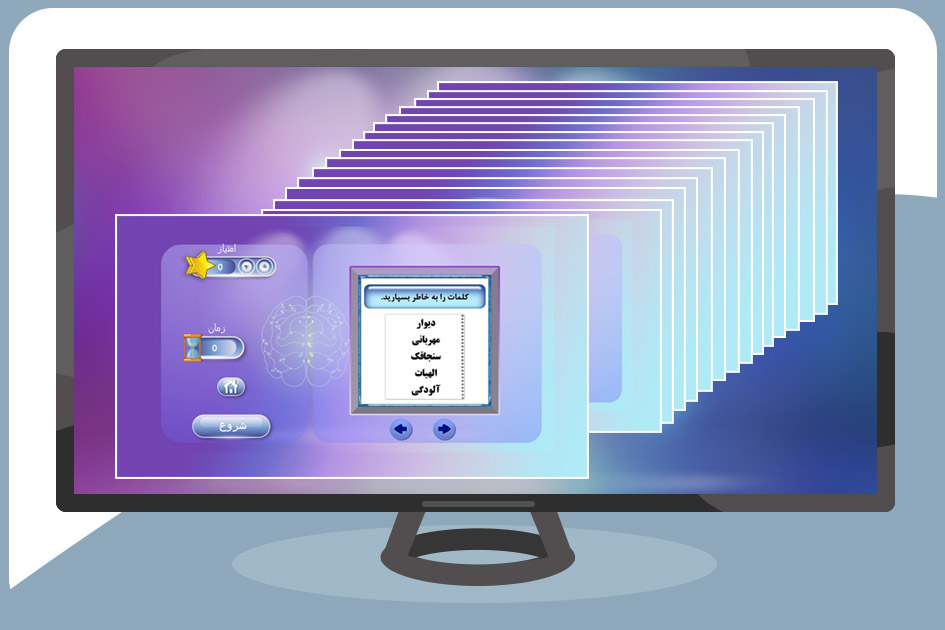
Discover the transformative power of AMIN, an expert-level cognitive training program meticulously tailored for proficient practitioners. Built on a solid theoretical foundation, AMIN offers a comprehensive working memory intervention through a series of 21 paper-and-pencil tasks. Each task is meticulously designed for progressive, variable, and graded training, encompassing all components of working memory as per Baddeley's model. Engage with tasks like Repeated Articulation, Phonological Similarity Finding, Word Rhyme Searching, Word Synthesis & Analysis, Phoneme Deletion, Spoonerism, Word Letter Searching, Word Root Completion, Word & Image Sequence, Chunking, Story Memorizing, Image Memorizing, Acronym Making, Sentence Making, Picture Memorizing, Explicit Learning, Implicit Learning, Words Association, Word Making, Story Making, Story Paraphrasing, and N-back training (Nejati, Derakhshan, et al., 2023).
Reference
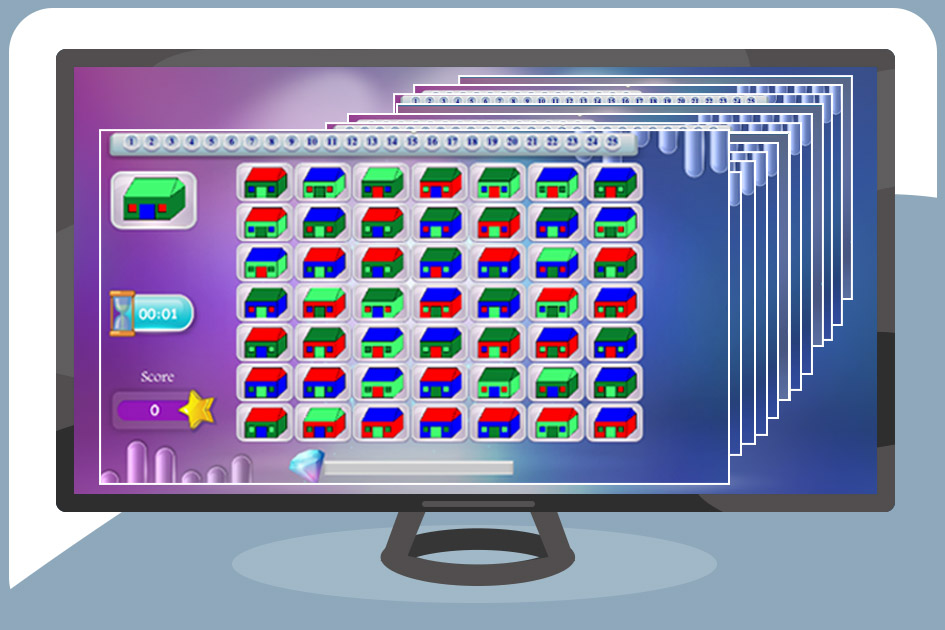
Introducing ARAM, an advanced cognitive training program meticulously crafted for experts in the field. Rooted in the hierarchical model of attention by Sohlberg and Mateer, as well as Baddeley's working memory model, ARAM offers a comprehensive framework for enhancing working memory. With 11 progressively challenging tasks, ARAM targets diverse facets of working memory, refining skills such as selective and sustained attention, cognitive flexibility, and working memory capacity. Engage in tasks including Colored Home, Faces, Similar Windows, Marked Tables, Segmented Images, Acronym Making, Last Colored, Animal Tracing, Repetitive Images, Letter Matching, and Delay Color Matching (Nejati, 2020).
Reference
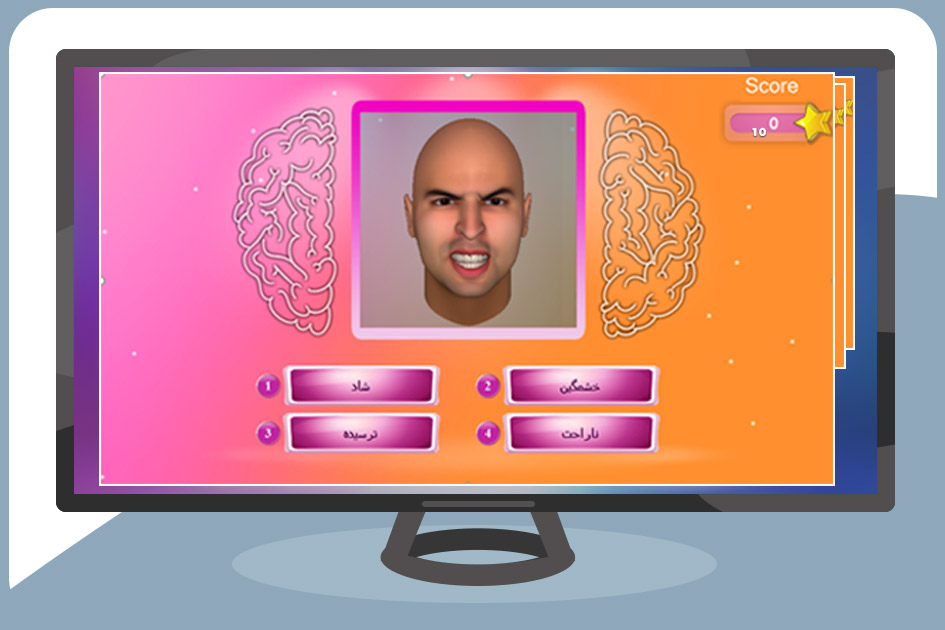
Experience the depth of emotional
cognition with AREF, an advanced cognitive training program meticulously
designed for seasoned practitioners. Elevate your ability to recognize facial
emotions through three captivating and progressive tasks: Explicit Emotion
Recognition, Emotional Face Matching (Frontal), and Emotional Face Matching
(Lateral) (Yaghini
et al., 2020).
Reference
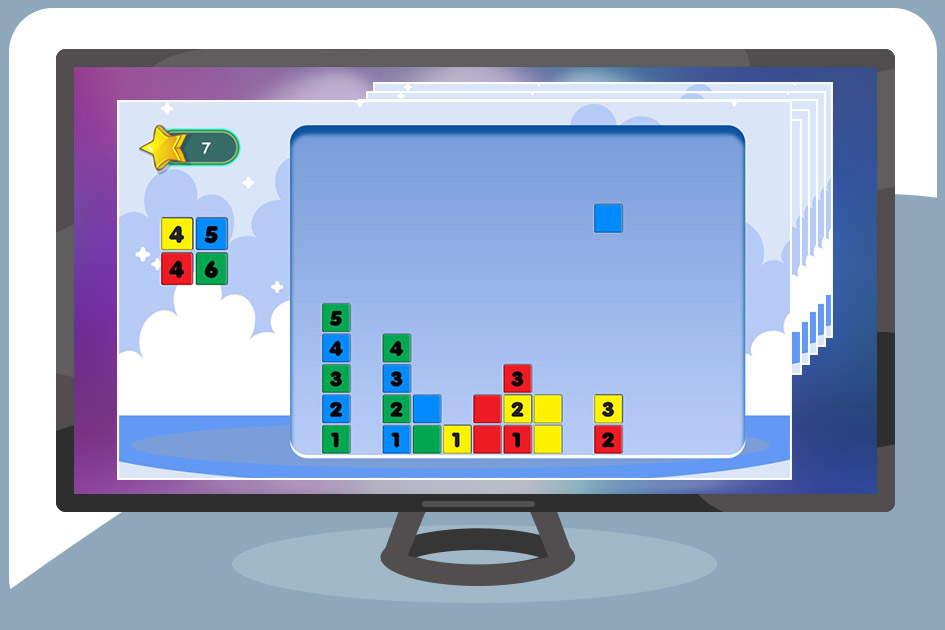
Introducing ARIA, an innovative
computerized attention training program meticulously designed for targeted
cognitive enhancement. Built on the foundation of the hierarchical model of
attention, ARIA comprises six attention-enhancing tasks, each expertly curated
to refine specific domains of attention. The task names – Boxes, Faces, Lamps,
Numbers, Missiles, and Goods– encapsulate the diverse attentional dimensions
targeted (Nejati
& Derakhshan, 2023).
Reference

Introducing ARP, a pioneering endeavor in attachment research, aimed at bridging the gap between attachment theory and neuropsychological research. The ARP database comprises four positive and four negative attachment-related categories, meticulously curated to encapsulate various dimensions of attachment experiences, including caring relationships, familial bonds, romantic connections, and experiences of separation and rejection. Through a rigorous validation process involving 310 participants, ARP offers normative ratings on dimensions of valence, arousal, attachment relevance, and category relevance for each picture category. With high internal consistency and reliability, ARP provides a robust platform for investigating information processing in attachment theory. Unlock the potential of attachment research with ARP, empowering researchers to delve deeper into the complexities of human attachment experiences.
Reference
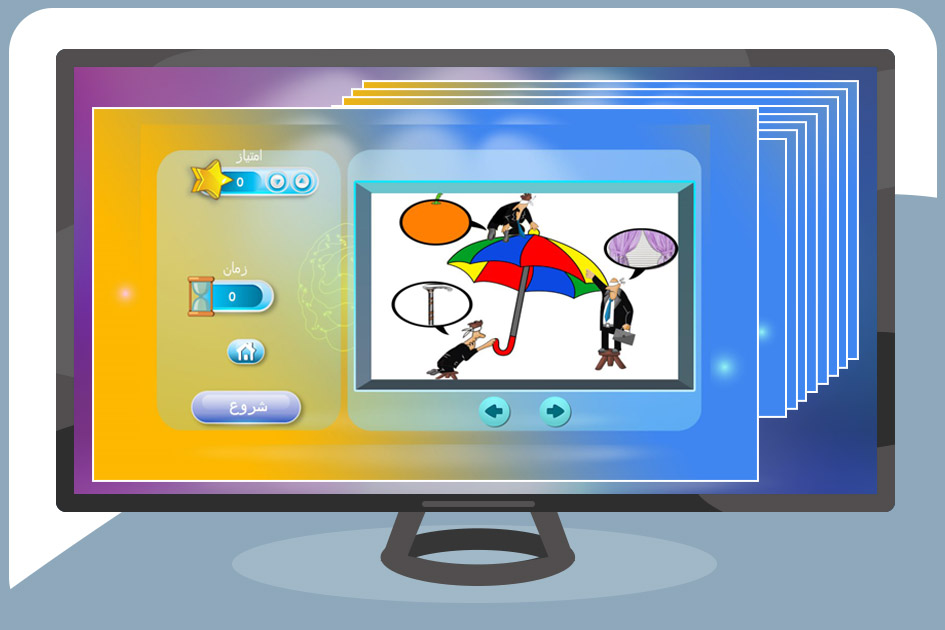
Delve into the complexities of social
cognition with ARTOM, an advanced cognitive training program expertly designed
for seasoned practitioners. Engage in tasks such as Plates, Hands, Faces,
Scenarios, Mirrors, Mimicry, Viewers, Lucky Boxes, Reality, Animals, Shelves,
Photographers, Dilemmas, Jocks, and Postures to elevate empathetic
understanding and theory of mind abilities (Nejati,
Khankeshlooyee, et al., 2023).
Reference
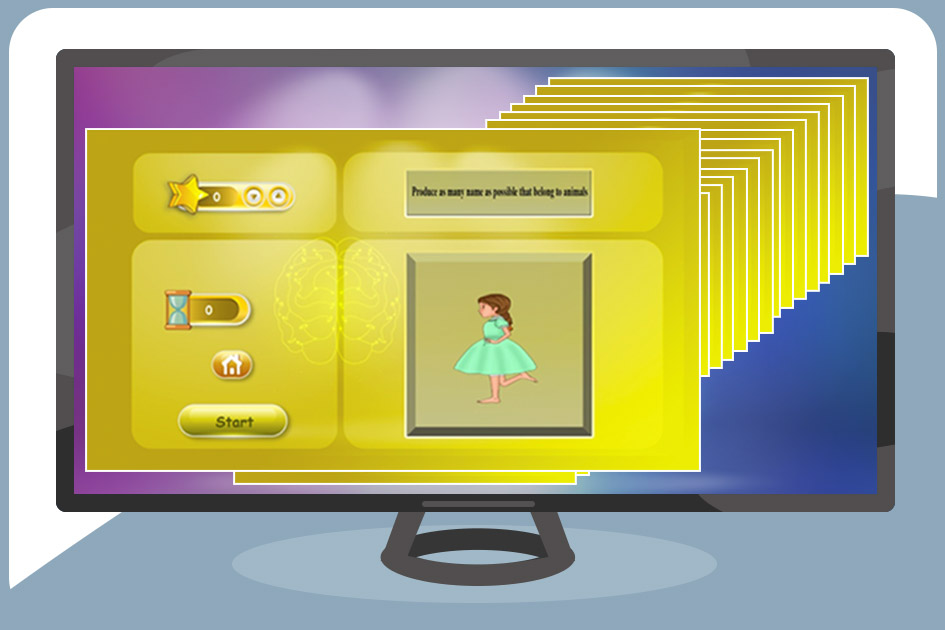
BARAN is an innovative program designed to enhance various domains of attention through the integration of balance and cognitive exercises. Developed around 120 progressive dual balance-cognitive tasks, BARAN offers a comprehensive approach to attention training. One of its standout features is its computerized monitoring system, which enables real-time performance tracking, task presentation, data recording, and progression monitoring. This allows for precise and tailored interventions, ensuring optimal outcomes for individuals undergoing attention rehabilitation. With its emphasis on balance-based exercises coupled with cognitive tasks, BARAN represents a promising advancement in the field of cognitive assessment and training (Nejati, 2021).
Reference
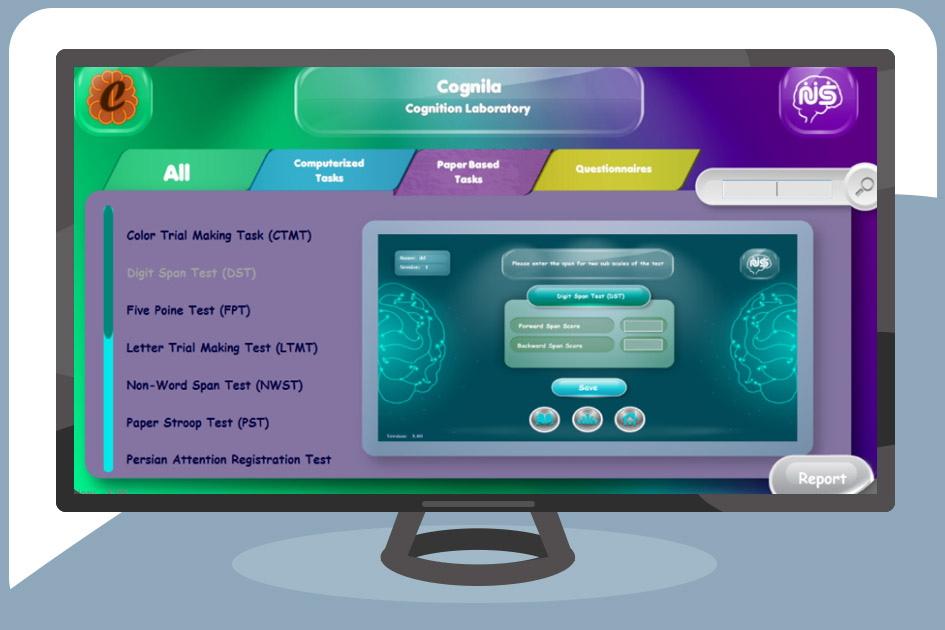
COGNILA offers a comprehensive package
of 100 cognitive tests covering attentional, executive, perceptual, memory, and
higher cognitive functions. With access to an extensive database of 85,000
records, COGNILA empowers researchers and clinicians with robust data insights.
It features three distinct versions tailored for various users: Lab Manager,
Researcher/Student, and Client/Participant, offering flexibility in access
levels and the possibility of teleassessment.

Immerse yourself in CORE, an
expert-level cognitive program tailored for educational settings. With 20
cognitive tasks spanning various domains, CORE enriches attentional and
executive functions in an educational context especially kindergarten. Engage with
tasks such as familiarization, selective response to stimuli, coordinated upper
limb movement, clapping-not clapping, different usage, selective naming, word
repetition, sequential naming, classification, animal slide, image remembering,
flanker stimuli, alternative naming, sequential stimuli, in-group individuals,
and reverse naming (Nejati
& Zavarei, 2023).
Reference
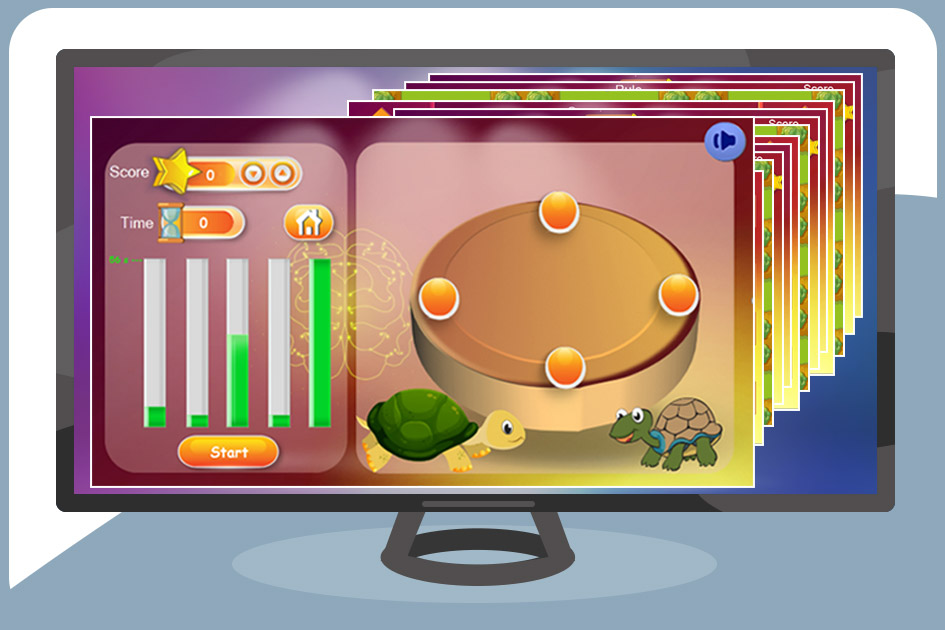
Explore the dynamic synergy of
cognitive excellence and physical prowess with EXCIR, an innovative cognitive
training program designed for expert practitioners. Through 11 progressively
demanding tasks, EXCIR seamlessly integrates cognitive challenges with physical
activity, fostering holistic cognitive well-being. Engage in tasks like
Selective Color Jumping, Sustained Jumping, Adjusted Hand Movements, Selective
Number Jumping, Opposite Hands Movements, Direction Selective Jumping,
Coordinate Limbs Movements, Sustained Color Jumping, Colored Block Jumping, and
Patterned Walking (Nejati
& Derakhshan, 2021).
Reference

The "FIELD Software" serves as a pivotal tool in operationalizing and applying the FIELD (Function, Implement, Ecology, Level, and Durability) model to intervention studies within the psychiatric therapeutic research domain. This software streamlines the complex process of integrating the five-dimensional perspective of the FIELD model into research methodologies, enabling researchers to systematically evaluate intervention effectiveness. By allowing users to input FIELD properties and conduct conceptual meta-analyses, the software facilitates nuanced assessments of intervention outcomes, enhancing researchers' ability to understand and enhance the generalization of therapeutic effects. In essence, the FIELD Software represents a user-friendly platform designed to advance transfer analysis in psychiatric therapeutic research, providing researchers with essential capabilities to assess, analyze, and optimize psychiatric interventions effectively.
Reference
Nejati, V. (2020).
Cognitive rehabilitation in children with attention deficit-hyperactivity
disorder: Transferability to untrained cognitive domains and behavior. Asian
Journal of Psychiatry, 49, 101949.
Nejati, V. (2022). Principles
of Cognitive Rehabilitation. Elsevier Science & Technology.
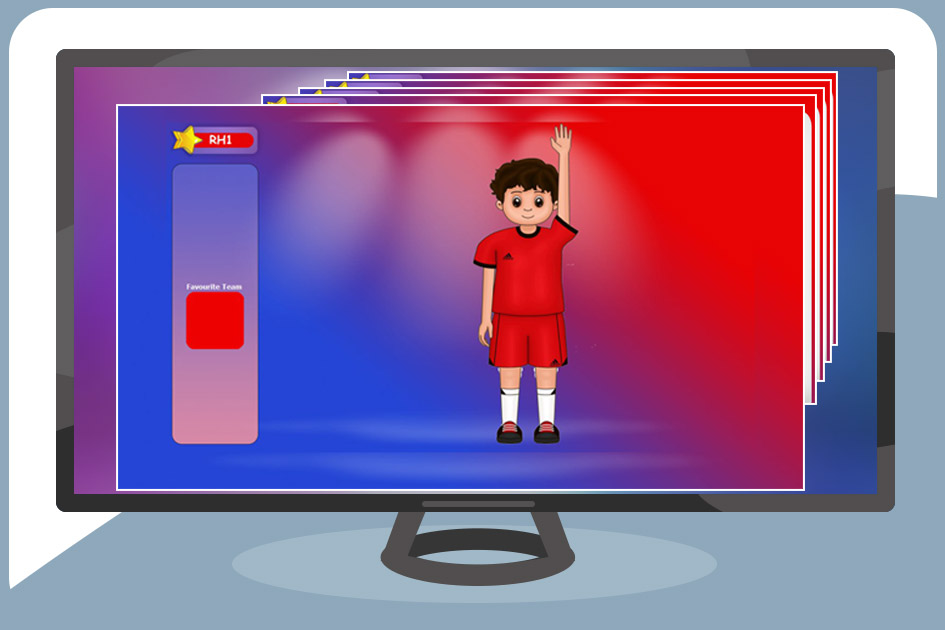
The KARA program leverages human-computer interaction to provide innovative attention remediation. Through a series of interactive progressive tasks combining physical movement of upper and lower limb and cognitive challenges, participants engage with stimuli on-screen, with their responses captured by the Kinect device. Real-time feedback provides for movement accuracy. Designed to target sustained, selective, shifting, and divided attention, KARA offers a dynamic platform for comprehensive attention training.
Reference
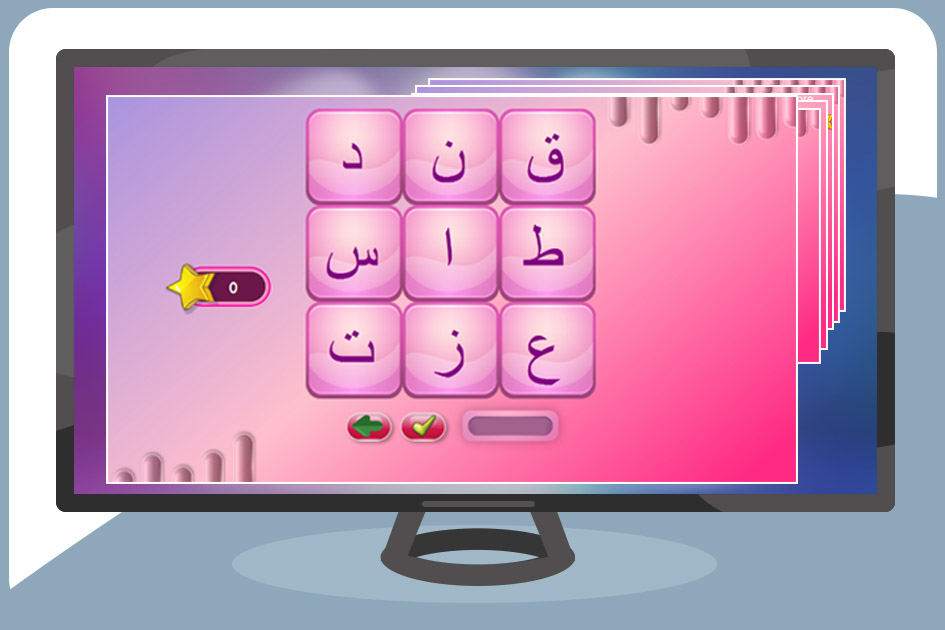
Unlock the potential of cognitive
interpretation with MAHIN, an advanced training program expertly crafted to
modify interpretation biases. Through tasks like Ambiguous Image Training,
Ambiguous Story Training, Ambiguous Facial Expression Training, Cross Word
Task, and Word Root Task, MAHIN refines reasoning and interpretation skills (Nejati
et al., 2018).
Reference
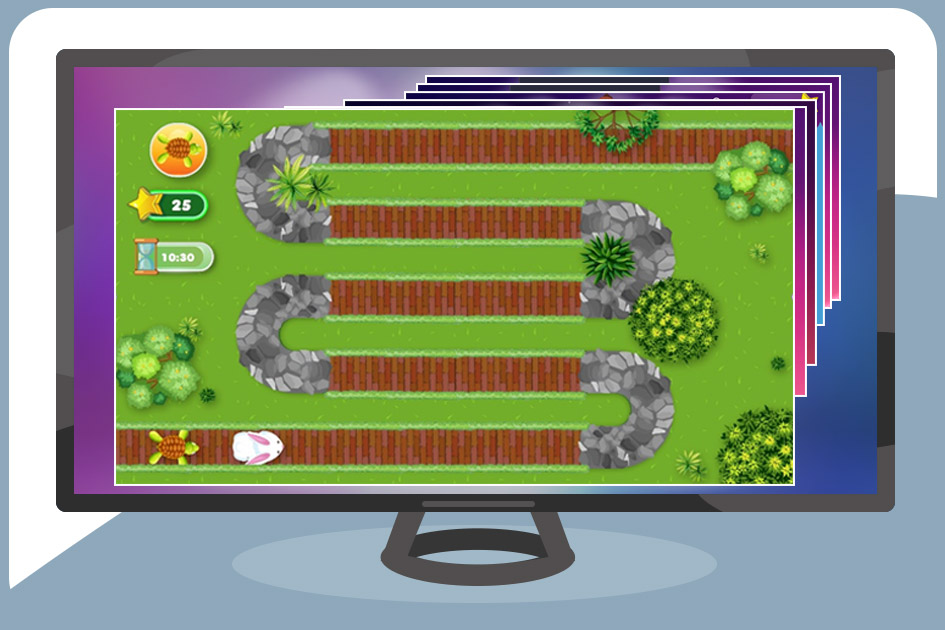
Unveil the intricacies of inhibitory control
with PARISA, an advanced cognitive training program tailored for expert
therapists. Delve into six meticulously curated tasks designed to enhance
interference control, prepotent inhibition, and action inhibition. Strengthen
cognitive abilities such as attention, response inhibition, and cognitive
flexibility with tasks like Faces, Fishes, Boxes, Hats, Traffic Signs, and the
Rabbit & Turtle Race (Nejati et al., 2022).
Reference
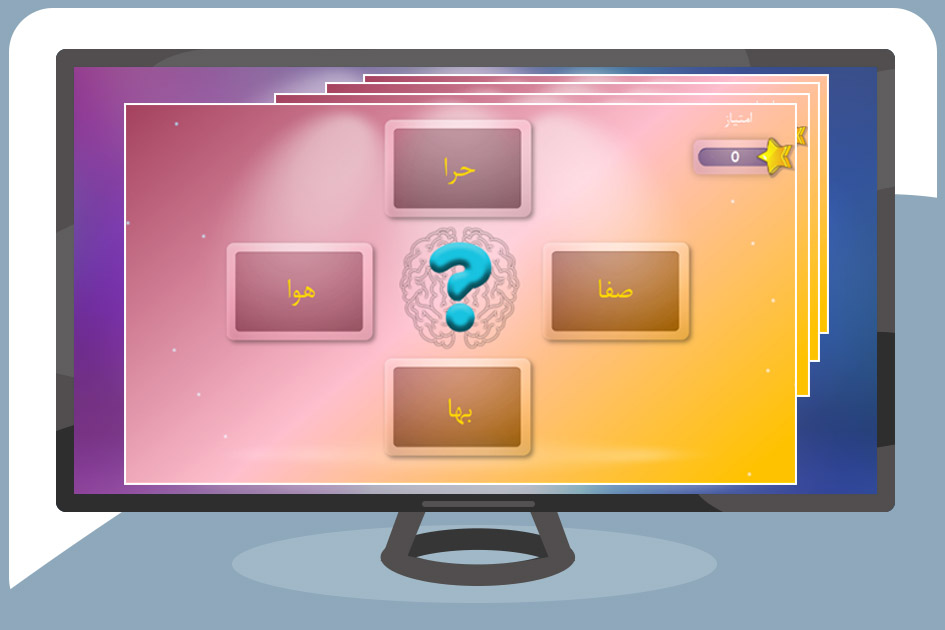
Elevate memory capabilities with PARMIN, an expert-level cognitive training program tailored for cognitive enhancement practitioners. Modulate memory bias with tasks like Acronym Making, Word Matching, Finding Scenes, and N-Back Training, fostering positive information processing and cognitive growth (Nejati et al., 2019).
Reference
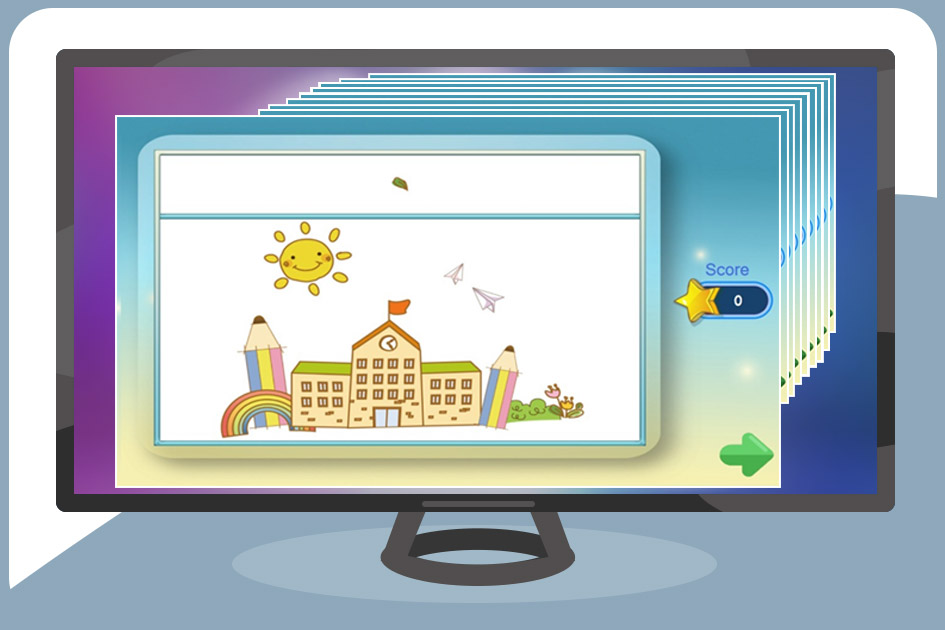
Introducing PARS, a cutting-edge
cognitive rehabilitation program meticulously designed for individuals seeking
to improve attentional abilities. Grounded in hierarchical model of attention,
PARS targets various attentional functions essential for daily functioning.
With 9 dynamic tasks, PARS offers a comprehensive approach to attention
rehabilitation, addressing auditory and visual attention, cognitive
flexibility, problem-solving, and more. Dive into tasks like Auditory Finding,
Visual Finding, Crossword Tables, Card Sorting, Word Finding, Selective
Addition, Difference Finding, and advanced Card Sorting variations. Elevate
your cognitive abilities with PARS and experience meaningful improvements in
attention and cognitive function (Nejati, 2021).
Reference

Experience spatial cognition at its peak with PARSA, a specialized cognitive training program designed for expert practitioners. Engage in tasks such as Tracing, Finding Stimuli, Image Matching, Acronym Making, and Target Selection, and elevate your spatial abilities to new heights (Yazdani et al., 2021).

Presenting PART – an elite cognitive
training program meticulously crafted for professionals seeking to augment time
perception capabilities. With a collection of eight progressively structured
tasks, PART offers a variable and graded regimen designed to refine and
remediate time perception skills. The tasks are Power Saving, Light On, Same
Duration, Longer Duration, Same Mask Duration, Similar Duration Windows, Moving
Animals, and Missile. Each task embodies a specific facet of time perception,
providing a targeted and comprehensive training experience (Nejati
& Peyvandi, 2023).
Reference

SCOPE is an innovative cognitive training program tailored for organizational use, designed to assess and enhance the cognitive functions of employees and personnel. With a comprehensive approach, SCOPE targets twelve distinct cognitive domains categorized into two levels: basic and advanced functions. The basic level encompasses attention, memory, inhibition, flexibility, emotion recognition, and spatial processing, while the advanced level includes creativity, perspective taking, time orientation, social cognition, decision making, and planning.
SCOPE's effectiveness is rooted in rigorous validation across diverse industrial and organizational settings, involving a substantial database of over 7000 individuals. This robust validation ensures the reliability and accuracy of the tests, empowering organizations to make informed decisions regarding personnel development and training initiatives.
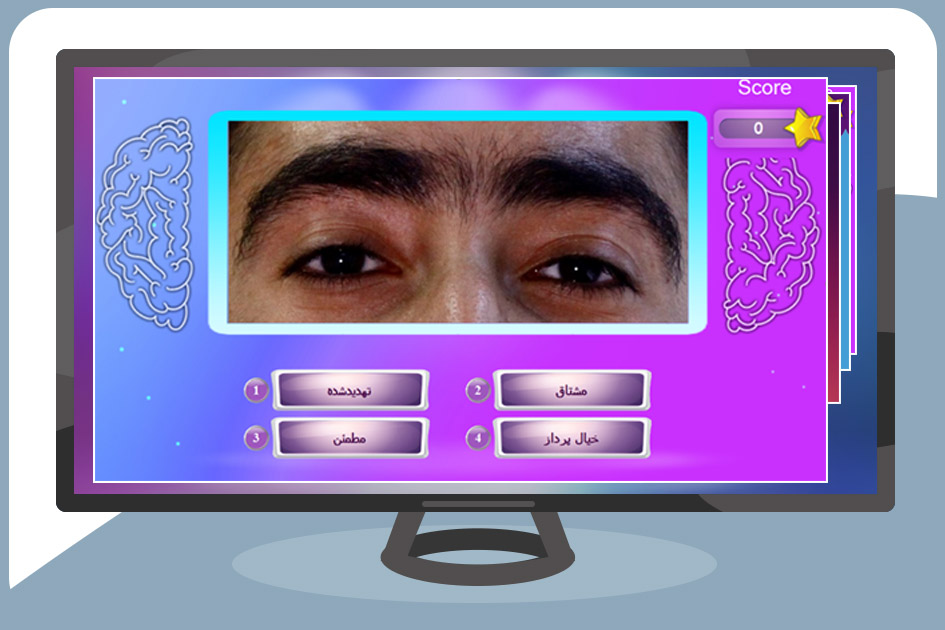
Unlock the art of mind-reading with TERME, a comprehensive cognitive training program tailored for experienced professionals. Refine mind-reading skills across varying levels of difficulty with tasks like Read the Mind (Beginner), Read the Mind (Elementary), Read the Mind (Intermediate), and Read the Mind (Advanced).
